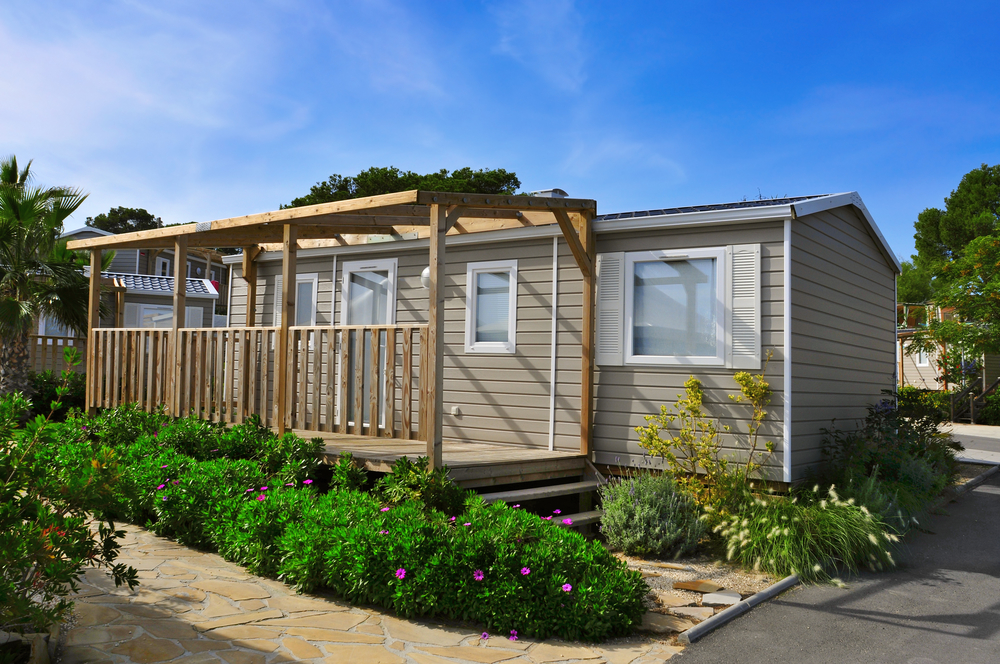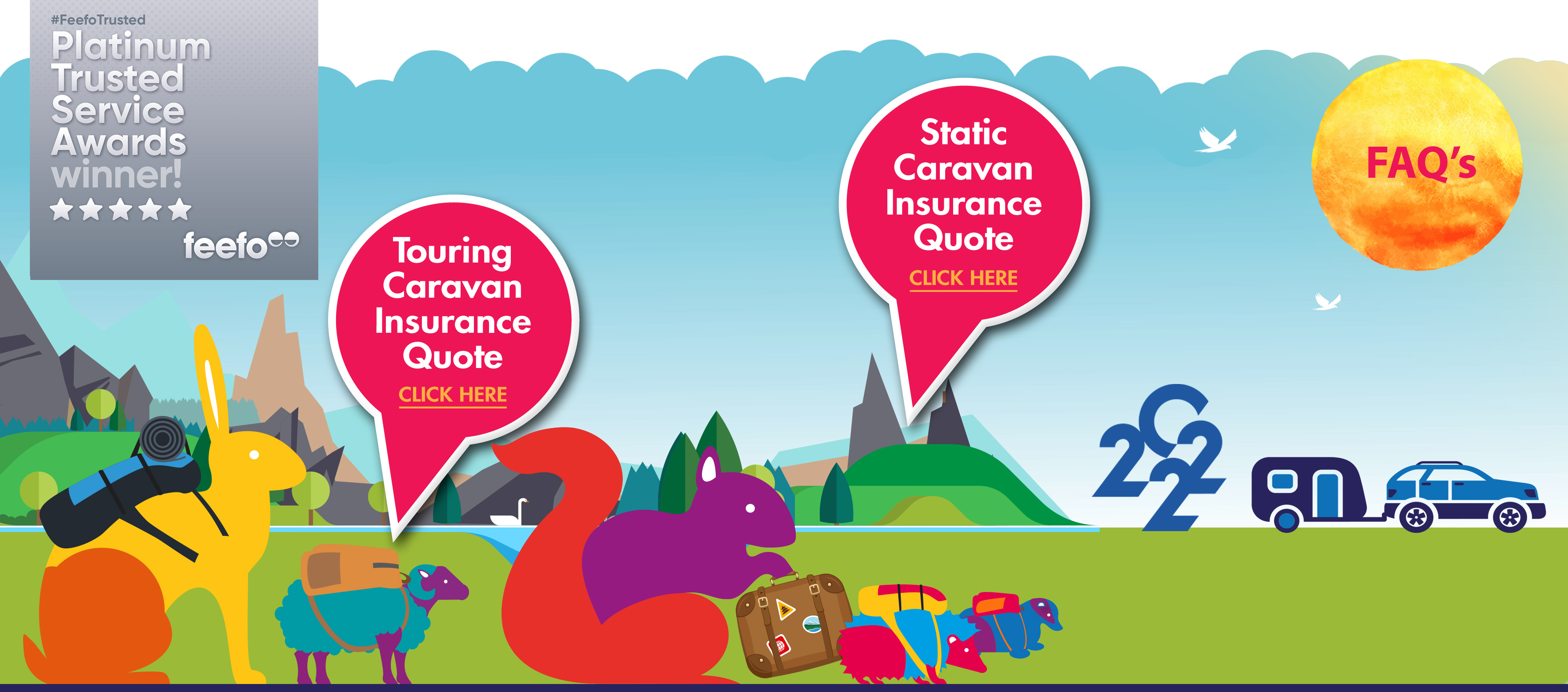
A holiday caravan may prove the perfect answer if you are looking for somewhere to call a second home from home – whether for your own use or to generate a seasonal income from holiday lettings.
If you are looking to invest in a static caravan, then no doubt you will be very excited – and perhaps a little worried too. After all, it is a big purchase, and you want to make sure you get the most suitable static caravan for you and in the most appropriate location.
The purchase is likely to represent a serious investment, so the following article may not only help you in your search for a suitable static home but also to suggest some of the potential pitfalls to avoid and remind you what you need to remember, such as static caravan insurance.
Please read on for our quick guide to what to consider when buying a static caravan …
Where?
It might sound like stating the obvious but choosing the most suitable holiday park location for your static caravan is crucial. After all, this decision underpins how often you’ll visit, how much you’ll enjoy your time there, and even how easy it is to let it out to holidaymakers if rental income is part of your plan.
Before committing, it’s a good idea to visit the area in person – not just once, but ideally a few times and in different seasons. This helps you determine whether it’s a place you genuinely want to return to time and time again. Consider how far it is from your home too. A location that’s too remote may limit spontaneous weekend getaways or make quick visits more effort than they’re worth.
If you’re buying with the intention of letting the caravan out, location becomes even more important. You’ll want to be in or near a region that consistently attracts tourists – coastal hotspots, national parks, or areas of outstanding natural beauty can tick all the boxes.
Once you’ve shortlisted a park, take a critical look at the site itself:
- is it well-maintained?
- what’s the condition of neighbouring caravans?
- are there any signs of neglect, like overgrown hedges or poor drainage?
Look beyond the immediate plot and consider the wider area – are there local attractions, decent amenities, or potential eyesores like industrial buildings or noisy roads nearby?
Don’t forget to investigate less obvious issues, too. Look into flood risk maps, enquire about any upcoming developments, and check whether there are planning permissions granted for nearby structures that could spoil your view – or your peace and quiet.
Static caravan sales
Buying a static caravan directly from a manufacturer or independent dealer might sound appealing – especially if you’re keen on having something brand new or tailor-made – but it comes with its own set of challenges.
The first hurdle is finding a park with a suitable pitch. Many holiday parks already operate at full capacity or have specific restrictions on the number and type of caravans they can accommodate. So even if you find your dream caravan, you may struggle to find anywhere to place it.
Even if you do find a park willing to lease you a pitch, typically you’ll need to arrange – and fund – the transport of the caravan to the site. Static caravans are large, heavy structures and transporting them is no minor feat. The logistics alone can be complicated, and the associated costs can run into the thousands.
That’s why many buyers opt for a static caravan that’s already sited on a holiday park. This offers a more straightforward route into ownership and often means the caravan is already connected to essential services like electricity, gas, and water. It also gives you the advantage of being able to experience the park environment before committing – seeing what it’s like in practice rather than relying on brochures or promises.
Whichever route you choose, it’s wise to keep future resale value in mind. It might feel like a forever purchase now, but circumstances can change.
One day, you may want or need to sell your caravan, so it makes sense to approach the purchase with your capital – and its potential return – in mind. This leads us on to …
What is the lifespan of a static home?
The lifespan of a static caravan typically ranges from 15 to 30 years, but this can vary depending on several factors including:
- Build quality
Higher-end static caravans built with better materials and construction standards will naturally last longer than entry-level models.
- How well it’s maintained
Regular maintenance – such as checking the roof, sealing joints, draining down for winter, and servicing the boiler – can significantly extend the life of your caravan.
- Where it’s sited
Exposure to coastal air (which can be salty and corrosive), extreme weather, or poor drainage can shorten a caravan’s lifespan. A well-sheltered, well-maintained park can help preserve it for longer.
- Usage
Caravans used year-round or as holiday lets may wear out faster than those only used occasionally by private owners.
How long can you keep it on-site?
Even if your caravan is in good condition, many holiday parks operate a maximum age limit policy, which typically ranges from 10 to 20 years. After this period, they may ask you to upgrade, sell off-site, or remove the caravan – even if it’s still usable. Some parks offer licence extensions if your caravan is in good shape and the site owners are flexible.
Make sure you understand the static park’s caravan age policy.
How you use it
When looking for a suitable holiday park, you might want to bear in mind that some may be more appropriate than others with respect to the lifestyle you want to enjoy when on holiday – some, for example, may hold a particular attraction to families with small children, others might appeal to young adults and those in search of a much quieter time might opt for a park oriented towards couples.
You are likely to get a feel for the type of park it is when you read through the park operator’s literature and, of course, when you visit the place. Some giveaway clues may be in the way facilities, equipment, play areas and gardens are maintained.
Spend time on the static home site before you purchase and get to know the site owners as well as possible. Look carefully at the pitch rental agreement and any site terms and conditions, to make sure that they are not draconian and are ones that you could live happily with.
At the risk of stating the obvious, make sure your static caravan has been subject to a thorough inspection. If this is your first purchase, then you may wish to get someone to help you inspect your caravan who understands the area well. Making mistakes in this area might prove to be expensive
The lease
To keep your holiday home at your chosen park on the pitch it is allocated, you enter an agreement with the park’s owners for the lease of that plot of land.
The lease agreement and the various rules and regulations through which the owners manage the park is an important contract which you need to understand very clearly from the start.
It not only sets out how much you need to pay – by way of monthly site fees or an annual fee – but also covers many other aspects of your tenure, including points previously mentioned above:
- the duration of your lease (the length of time your static caravan may stay on the pitch);
- whether your static caravan needs to be below a certain age to stay on its pitch – some parks may allow an indefinite occupation of your pitch, provided you keep the caravan well maintained and in a reasonable state of repair;
- your rights with respect to the park owners’ reallocating your pitch to another part of the site; and
- if you plan to let your holiday home, whether the park imposes any further restrictions, such as the age any let caravan needs to be.
Static caravan insurance – do you have to use the site owner’s insurance?
In most cases, no – but check your park’s terms. Some sites include static home insurance as part of their pitch fees or offer it as an ‘add-on’. Others might say you’re free to arrange your own cover but require you to prove you’ve got an active policy that meets their minimum requirements (such as public liability insurance up to a certain amount). This may include a small admin fee.
If you’re not locked in, you absolutely have the right to shop around for static caravan insurance.
Is it cheaper to go through a broker?
Specialist caravan insurance brokers who deal with static caravans typically compare multiple insurers and tailor the policy to your exact needs – whether that’s cover for accidental damage, theft, or loss of use.
Going with a broker may:
- save you money on the premium;
- give you access to better policy features or higher limits;
- make claims handling easier if you’re dealing with experts in this niche.
If you choose to arrange your own static caravan insurance cover, make sure the site owner is happy with your insurer and that the policy complies with any conditions in your pitch licence agreement. You’ll likely need to send them a copy of your static home insurance certificate each year.
You can read our in-depth article and get some answers to static caravan insurance FAQS here.
Summary
Buying a static caravan and owning it should be fun – and for many fortunate owners it is. Just remember though that it does involve a considerable investment of your money and therefore try to approach your decision with a cool and logical head.
Further reading: Guide to buying a static home

